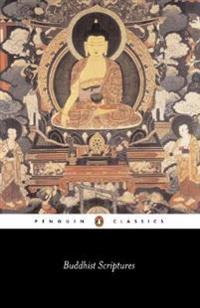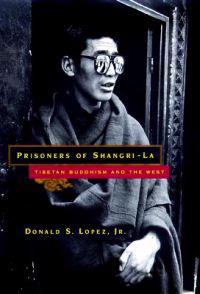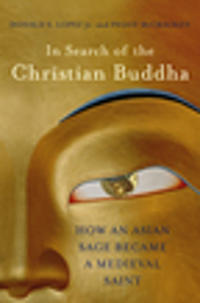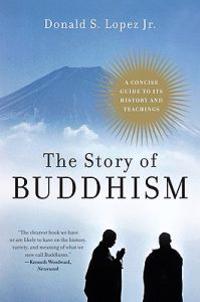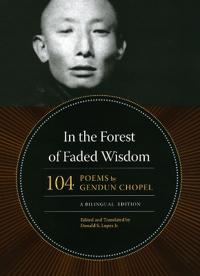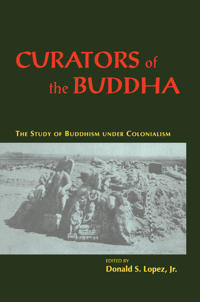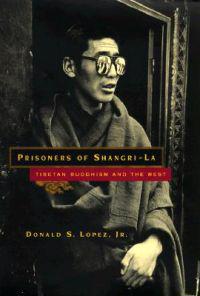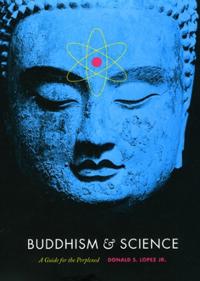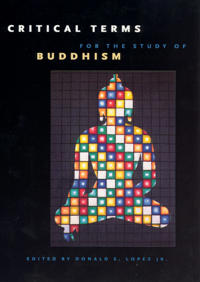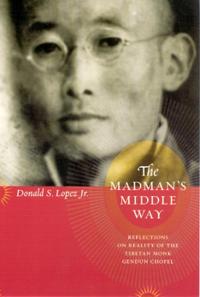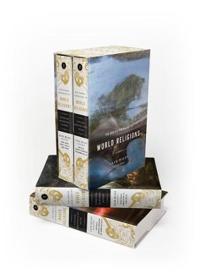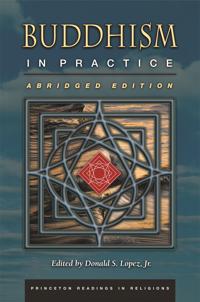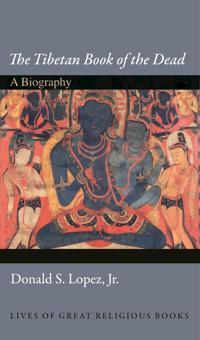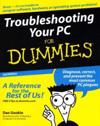Buddhist Scriptures (Storpocket)
avDonald Lopez
ISBN: 9780140447583 - UTGIVEN: 200403While Buddhism has no central text such as the Bible or the Koran, there is a powerful body of scripture from across Asia that encompasses the dharma, or the teachings of Buddha. This rich anthology brings together works from a broad historical and geographical range, and from languages such as Pali[...]
Prisoners of Shangri La (Häftad)
avDonald Lopez
ISBN: 9780226493114 - UTGIVEN: 199905Donald Lopez provides in this book a cultural history of the strange encounter between Tibetan Buddhism and the West. He reveals fanciful misconceptions of Tibetan life and religion, examines the movement for independence from China and the politics of the term "Lamaism", a pejorative synonym for Ti[...]
In Search of the Christian Buddha (Inbunden)
avDonald S. Lopez, Peggy McCracken, Donald S. Lopez
ISBN: 9780393089158 - UTGIVEN: 2014-04The tale of St Josaphat, a prince who gave up his wealth and kingdom to follow Jesus, was widely told and read in the Middle Ages, translated into a dozen languages and even cited by Shakespeare in The Merchant of Venice. Only in the nineteenth century did scholars note the parallels between the liv[...]
The Story of Buddhism: A Concise Guide to Its History & Teachings (Häftad)
avDonald S., Jr. Lopez
ISBN: 9780060099275 - UTGIVEN: 200908An enlightening historical survey of Buddhism illuminates the great variety of teachings, schools, and practices associated with the religion, and traces the historical development of Buddhism throughout diverse cultures. Reprint.[...]
In the Forest of Faded Wisdom (Inbunden)
avGendun Chopel, Donald S. Lopez, Gendun Chopel
ISBN: 9780226104522 - UTGIVEN: 2009-11In a culture where poetry is considered the highest form of human language, Gendun Chopel is revered as Tibet's greatest modern poet. Born in 1903 as British troops were preparing to invade his homeland, he was identified at any early age as the incarnation of a famous lama and became a Buddhist mon[...]
Curators of the Buddha (Häftad)
avDonald S. Lopez
ISBN: 9780226493091 - UTGIVEN: 199509This is a critical history of the study of Buddhism in the West, bringing the insights of colonial and post-colonial cultural studies to bear on this field. After an overview of the origins of Buddhist studies in the early 19th century, the essays focus on important "curators of the Buddha," such as[...]
Prisoners of Shangri-La (Inbunden)
avDonald S. Lopez
ISBN: 9780226493107 - UTGIVEN: 199805Donald Lopez provides in this book a cultural history of the strange encounter between Tibetan Buddhism and the West. He reveals fanciful misconceptions of Tibetan life and religion and examines the movement for independence from China and the politics of the term "Lamaism", a pejorative synonym for[...]
Buddhism and Science (Inbunden)
avDonald S. Lopez
ISBN: 9780226493121 - UTGIVEN: 2008-11Beginning in the nineteenth century and continuing to the present day, both practitioners and admirers of Buddhism have proclaimed its compatibility with science. In "Buddhism and Science", Donald S. Lopez Jr. explores how and why these two seemingly disparate modes of understanding the inner and ou[...]
Critical Terms for the Study of Buddhism (Häftad)
avDonald S. Lopez
ISBN: 9780226493152 - UTGIVEN: 2005-07Over the past century Buddhism has come to be seen as a world religion, exceeding Christianity in longevity and, according to many, philosophical wisdom. Buddhism has also increasingly been described as strongly ethical, devoted to nonviolence, and dedicated to bringing an end to human suffering. An[...]
The Madman's Middle Way (Pocket)
avDonald S. Lopez
ISBN: 9780226493176 - UTGIVEN: 200705Gendun Chopel is considered the most important Tibetan intellectual of the twentieth century. His life spanned the two defining moments in modern Tibetan history: the entries into Lhasa by British troops in 1904 and by Chinese troops in 1951. Recognized as an incarnate lama while he was a child, Gen[...]
The Scientific Buddha (Inbunden)
avDonald S. Lopez
ISBN: 9780300159127 - UTGIVEN: 2012-10This book tells the story of the Scientific Buddha, "born" in Europe in the 1800s but commonly confused with the Buddha born in India 2,500 years ago. The Scientific Buddha was sent into battle against Christian missionaries, who were proclaiming across Asia that Buddhism was a form of superstition.[...]
The Norton Anthology of World Religions (Inbunden)
avJack (EDT) Miles, Wendy (EDT) Doniger, Donald S. (EDT) Lopez
ISBN: 9780393062533 - UTGIVEN: 2014-11This magisterial Norton Anthology, edited by world-renowned scholars under the direction of Pulitzer Prize winner Jack Miles, offers a portable library of more than 1,000 primary texts from the world's major religions: Hinduism, Buddhism, and Daoism (Volume 1); Judaism, Christianity, and Islam (Volu[...]
Buddhism in Practice (Häftad)
avDonald S. Lopez
ISBN: 9780691129686 - UTGIVEN: 200703This anthology, first published in 1995, illustrates the vast scope of Buddhist practice in Asia, past and present. Re-released now in a slimmer but still extensive edition, "Buddhism in Practice" presents a selection of thirty-five translated texts - each preceded by a substantial introduction by i[...]
The Tibetan Book of the Dead (Inbunden)
avDonald S. Lopez
ISBN: 9780691134352 - UTGIVEN: 201102"The Tibetan Book of the Dead" is the most famous Buddhist text in the West, having sold more than a million copies since it was first published in English in 1927. Carl Jung wrote a commentary on it, Timothy Leary redesigned it as a guidebook for an acid trip, and the Beatles quoted Leary's version[...]
The Princeton Dictionary of Buddhism (Inbunden)
avLopez, Donald S, Jr, Buswell, Robert E, Jr
ISBN: 9780691157863 - UTGIVEN: 2013-11-01With more than 5,000 entries totalling over a million words, this dictionary of Buddhism in English covers terms from all of the canonical Buddhist languages and traditions: Sanskrit, Pali, Tibetan, Chinese, Japanese, and Korean. It also includes an appendix of Buddhist lists, a timeline, six maps, [...]
El Buddhismo: Introduccion a Su Historia y Sus Ensenanzas (Häftad)
avDonald S. Lopez
ISBN: 9788472457065 - UTGIVEN: 2010-12

